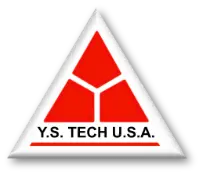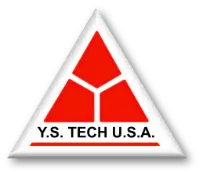Here’s why expert thermal consultation shortens time to market for NPI engineers
Picture this: you’ve spent months refining a solar panel or next-gen electronics module, only to watch your launch slip because of an overheating surprise. Maddening, isn’t it? You won’t be the first NPI engineer (and you won’t be the last) to see a promising product stall thanks to thermal missteps. But what if there was a way to dodge those headaches, move faster to market, and rest easy knowing your design will last?
Let’s start with a blunt truth: bringing in expert thermal consultation early isn’t just another box to tick. It’s your hidden lever to cut weeks off your timeline and sidestep the pitfalls that ruin even the strongest designs. NPI engineers in solar, power electronics, and beyond know a single temperature spike can balloon into warranty nightmares, angry customers, or a project headed for the scrap heap. Why gamble when expert guidance exists?
In this column, you’ll see why fast, strategic thermal insight is a genuine game-changer. You’ll learn what expert consultation actually delivers, why it matters in hard numbers, and what practical steps you can take today to line up your next launch for success.
Here’s what you’ll find in this article:
- The big deal: What’s really at stake with thermal management, and why expert advice matters.
- Why you should care: Tangible benefits, supported by examples and data.
- What to do next: Concrete steps to overhaul your process.
Before diving in, ask yourself: Have you ever seen a product delay triggered by overheating? Are you sure your current approach is enough to control heat—or is there room to improve? Could expert eyes be the difference between slipping deadlines and claiming first-to-market?
What’s the big deal?
Let’s be clear: heat is the silent killer of good products. For NPI engineers building solar or advanced electronics, thermal issues don’t just cause discomfort—they cost money, time, and trust.
At its core, thermal management is about keeping devices within their sweet spot, whether through fans, heat sinks, liquid loops, or design tweaks. Ignore it, and the fallout is inevitable.
Consider this: for every degree Celsius above optimal, a solar panel can lose up to 0.5% efficiency. That seems small—until a long summer adds up to thousands, even millions, in lost ROI. Source: YS Tech USA.
And it doesn’t stop at efficiency. Poor thermal control drives up service calls, warranty costs, and customer churn. Worse, you often don’t see it until late in the cycle, when redesigns are expensive and deadlines are already strained. That’s where expert thermal consultants come in—their entire role is extracting performance and reliability while dodging these traps.
Why should I care?
You might ask, “Thermal management matters, sure—but why bring in outside experts?” The answer: because consultation changes the entire development curve.
Cut down on delays
Early thermal input means fewer last-minute failures. According to Novo Engineering, integrating cooling strategies early can shrink time to market dramatically. Real-world case: a solar NPI team working with YS Tech USA shaved weeks off ramp-up by consulting before their first prototype—leapfrogging competitors stuck in redesign loops.
Save on long-term costs
Consultation may look like an extra expense, but it slashes warranty and support costs later. One overheating batch can trigger tens of thousands in repairs and tank your brand reputation. Proactive design flips the equation: one dollar invested now saves multiples down the line.
Unlock custom solutions
Off-the-shelf cooling won’t cut it for every NPI build. A heat sink that works in a laptop won’t fit a solar inverter. Experts create custom approaches that boost efficiency, shrink footprints, and improve system stability. Think new materials, tighter form factors, or higher output—all tailored to your design.
Stay compliant and secure
Failing certification tests weeks before launch can derail everything. Thermal consultants know UL, IEC, and other standards cold, steering your design toward compliance from day one. Heller Industries shows exactly how critical this guidance can be.
What can I do next?
Ready to stop firefighting and start accelerating? Here are the steps:
Bring in expertise early
Don’t wait for a hot prototype to rethink cooling. Engage partners as you sketch. YstechUSA has entire teams built for this.
Make collaboration routine
Thermal management isn’t solo work. Share CADs, simulation files, and test data across teams. Build a culture of prevention, not reaction.
Stay curious
New cooling materials, fluids, and software hit the market constantly. Workshops and expos keep you ahead, spotting opportunities others miss.
Assess risks as you go
Treat risk reviews as living documents. Use sim data to catch weak points before they blow up your schedule. YS Tech USA teams use this method to de-risk every stage.
Keep everyone looped in
Product owners, partners, even marketing should understand why heat matters. Unified buy-in makes approvals, resources, and execution far smoother.
Key takeaways
- Engage expert thermal consultants early to avoid costly redesigns.
- Build tailored solutions for efficiency, reliability, and compliance.
- Proactive thermal design reduces long-term service and warranty costs.
- Continuous collaboration and learning keep teams ahead of issues.
- Transparent communication accelerates decision-making and delivery.
Expert thermal consultation isn’t just a technical fix—it’s a strategic advantage. Treat it as such, and you turn heat from a liability into a launch accelerator. Next time you plan a rollout, ask: Am I designing thermal performance in from the start—or leaving it to chance? Could one consultation save me months of stress? And most importantly, how much faster could I win if thermal problems were off the table entirely?
FAQ: Expert thermal consultation & its impact on time to market for NPI engineers
Q: Why is thermal management so critical in NPI projects?
A: Because heat quietly dictates reliability, performance, and lifespan. In industries like solar and electronics, poor thermal control means overheating, efficiency losses, and warranty spikes—all of which slow down launches and erode ROI.
Q: How does expert thermal consultation actually speed up time to market?
A: By identifying risks before they surface. Thermal specialists spot design flaws early, guide cooling strategies from concept, and prevent costly late-stage redesigns. The result: smoother validation, fewer surprises, and faster delivery.
Q: What do custom thermal solutions deliver that off-the-shelf fixes can’t?
A: Tailored solutions address the unique heat profile of your design. Instead of retrofitting generic parts, you get cooling that improves efficiency, boosts reliability, and often unlocks innovations—whether that’s tighter packaging or higher system output.
Q: When should NPI engineers involve thermal experts?
A: From day one. Early collaboration integrates cooling into the design DNA, avoids last-minute scrambles, and ensures compliance and performance targets are built in—not patched on.
Q: How does strong thermal design affect compliance?
A: Thermal consultants understand the standards landscape—UL, IEC, and beyond. Their input helps ensure every stage of development meets safety and regulatory benchmarks, preventing last-minute failures that delay launches.
A: Start with early engagement of specialists, share design data openly, and keep risk reviews ongoing. Stay updated on new materials and methods, and align all stakeholders on the importance of heat management. Together, these steps turn thermal challenges into launch advantages.



